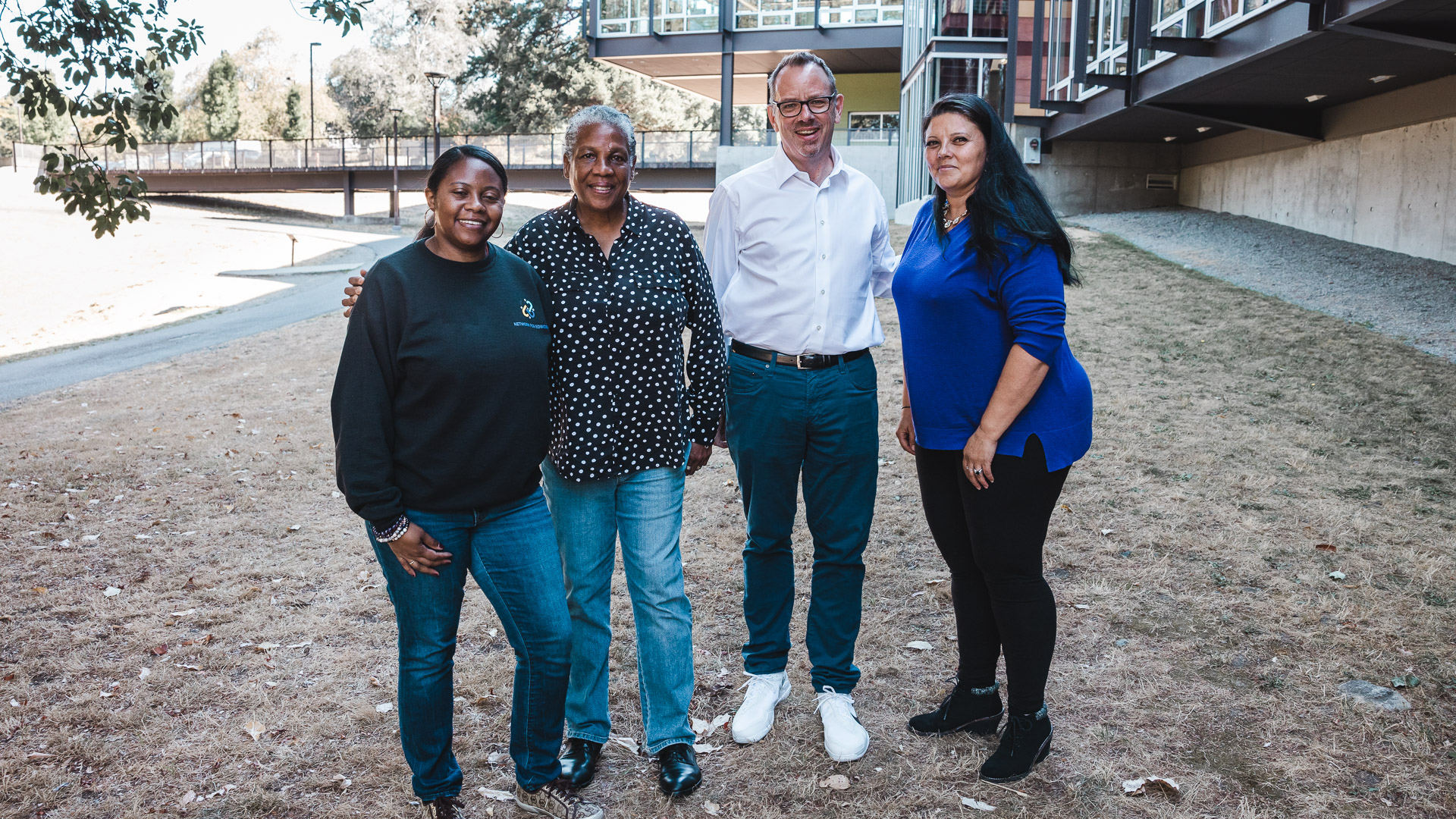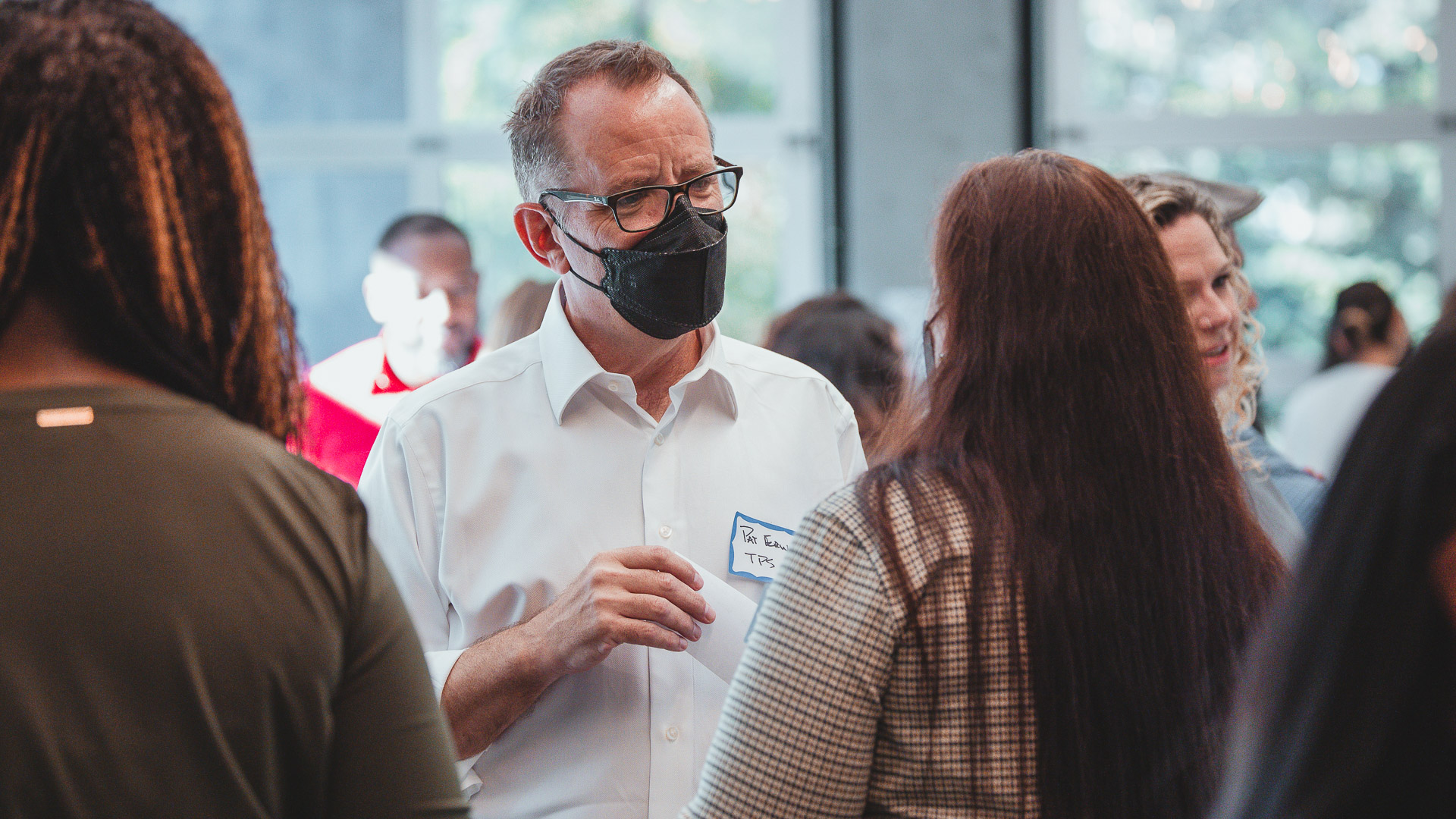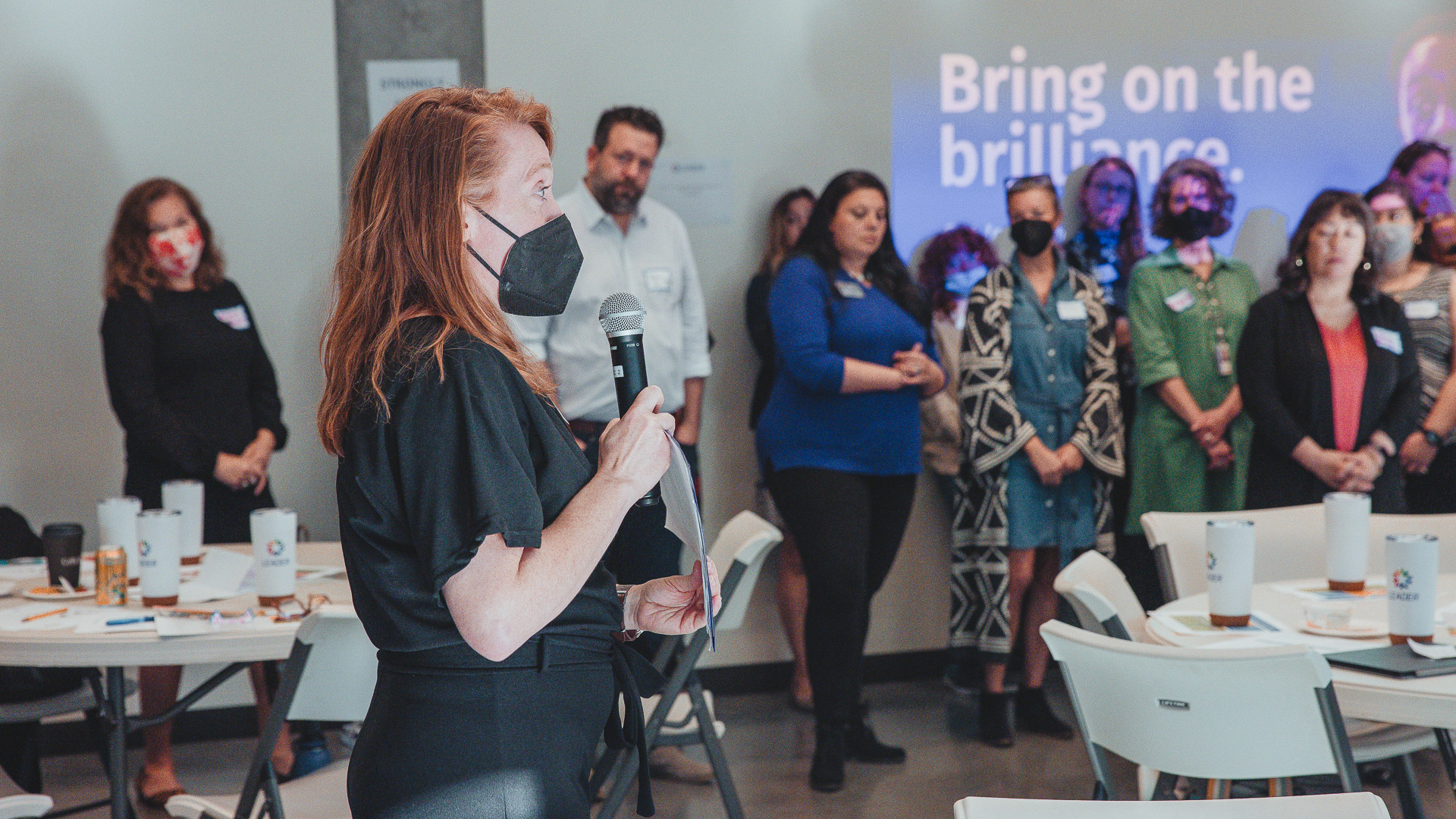
“The education sector tends to approach change with technical solutions,” says Trish Millines Dziko, co-founder and executive director of Technology Access Foundation (TAF), a Seattle-based nonprofit redefining K-12 public education in Washington state.
After working to reshape public education for the past 26 years, she recognizes that while technical solutions may offer short-term results, they don’t generally contribute to long-term transformation. Instead, Millines Dziko explains the adaptive nature of the problem — an education system that doesn’t work for most students.
“When integration happened, we lost all of our Black teachers because white schools would not hire Black teachers,” she says. “Since then, the problem has grown. We’re at 70-80% nationwide of teachers who are white, while over 50% of students are of color, and this group of people is shaping every generation. In addition to needing more teachers of color, we need more leaders of color as well as white teachers who have done the work to understand who the kids are in front of them.”
She specifies that this need encompasses educators in schools with students who are all white. “It’s important related to how teachers talk about the world beyond the school’s doors,” says Millines Dziko.
She describes how their Network for EdWork coalition of TAF, and 11 universities, including the University of Washington (Seattle, Tacoma and Bothell), Seattle Pacific University, Antioch University, Seattle University, The Evergreen State College, Pacific Lutheran University, Central Washington University, Washington State University, and Heritage University, had just completed two years of planning when they heard about the LEADER Initiative. Now the grant supports them in expanded planning to include Tacoma Public Schools, Federal Way Public Schools and Highline Public Schools to envision three potential projects. The projects span recruitment, retention and development of teachers of color, including engagement of white leaders as allies in creating welcoming environments.
While the LEADER Initiative is exciting, Millines Dziko emphasizes that this work takes time. “This is a long haul,” she says, describing how TAF partners with schools for five years at the minimum and usually 10. “You have to be in it to win it, and you have to stay,” she says
This is because the problems have staying power and continually adapt. “Maybe a school has three to four teachers of color in the whole school,” she says. “They’re new to teaching, and because they are of color, the white teachers want to give them the Black and brown kids they are having trouble with, thinking they’ll ‘handle’ them better. Those kinds of things need to be broken, and it’s why we need allies.”


Instead of talking people out of quitting because environments aren’t ready for students, teachers and families, Millines Dziko would rather build a shared vision. She points out that building a shared vision involves something other than schools comparing themselves to one another and competing to be the best in the state. It requires culture change, long-term collaboration and thinking through what it means to be well-educated in Washington state.
“I’m happy that the LEADER Initiative is set up as a collaborative partnership,” says Millines Dziko. “We have access to data, and it gives all our teams the chance to see if our work is effective.”
After doing this work in various forms for so many years, she wonders if people outside of the education system understand there is a problem. “What will it take to make sure everybody understands it’s an issue?” Millines Dziko asks. “Some cool new math reform won’t do anything if kids don’t feel supported and loved.”
Find out how you can Get Involved, explore our virtual Events, or sign up below for news updates about the LEADER initiative.
Get the latest — subscribe to our electronic newsletter.
By signing up you agree to receive occasional communications from College Spark Washington. You can unsubscribe at any time. We respect your right to privacy. Please review our Privacy Policy
